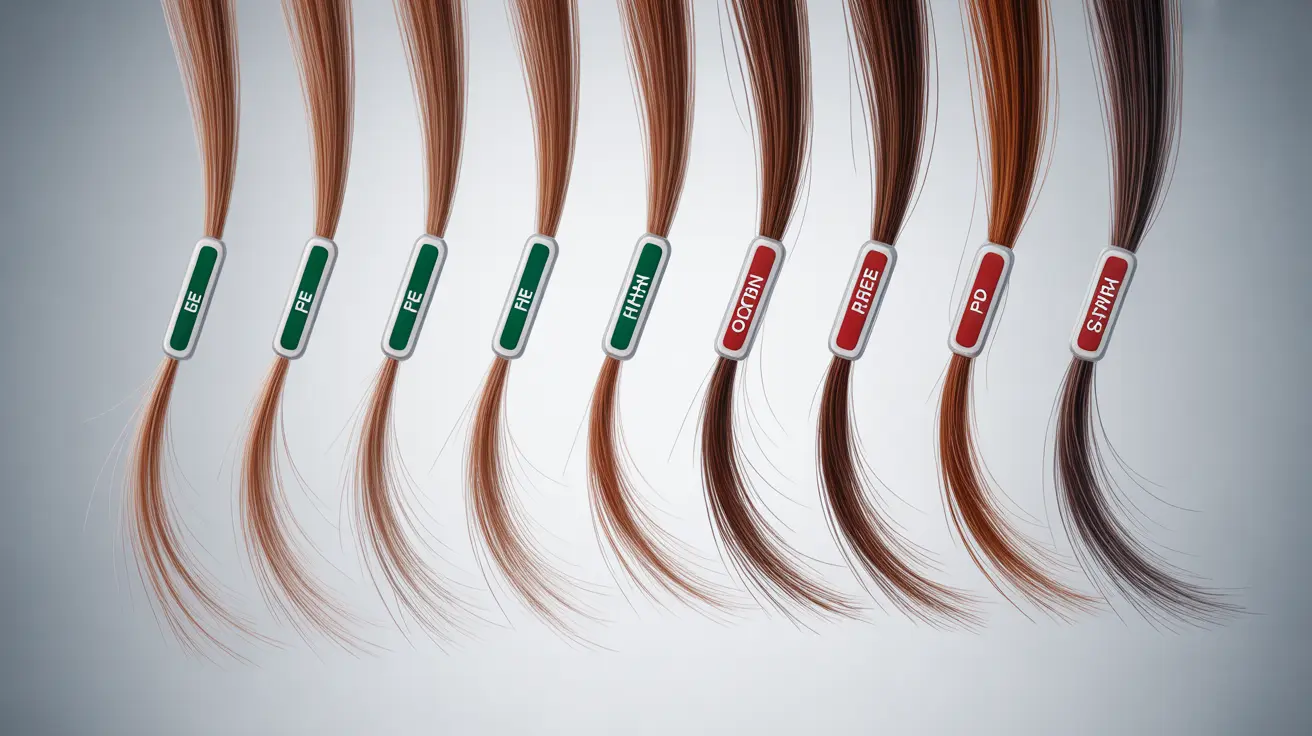Many people wonder about the impact of shampoo on their hair health, especially when it comes to daily washing routines. While shampoo is essential for maintaining clean and healthy hair, using it incorrectly or choosing the wrong products can potentially damage your locks. Understanding the relationship between shampoo and hair health is crucial for maintaining a healthy scalp and lustrous hair.
In this comprehensive guide, we'll explore how shampoo affects your hair, what ingredients to watch out for, and how to develop a hair washing routine that works best for your specific hair type.
The Impact of Daily Shampooing
Regular shampooing plays a vital role in maintaining scalp and hair health, but the frequency of washing should be tailored to your individual needs. Daily washing isn't necessarily harmful if you're using the right products and have the appropriate hair type.
However, over-washing can strip your hair of its natural oils (sebum), leading to:
- Dry, brittle strands
- Increased frizz
- Scalp irritation
- Color fading (for treated hair)
- Potential breakage
Understanding Your Hair's Natural Oils
Your scalp produces natural oils that help protect and nourish your hair. When you shampoo, you remove these oils along with dirt and product buildup. Finding the right balance is key – you want to maintain cleanliness without compromising your hair's natural protective barrier.
Harmful Ingredients to Avoid
Not all shampoos are created equal. Some ingredients can potentially damage your hair or irritate your scalp. Here are the main ingredients to watch out for:
- Sulfates (SLS and SLES)
- Parabens
- Formaldehyde
- Synthetic fragrances
- Phthalates
- Propylene glycol
Instead, look for products containing natural ingredients such as:
- Aloe vera
- Natural oils (argan, jojoba, coconut)
- Plant-based cleansers
- Panthenol
- Natural proteins
Hair Type and Washing Frequency Guide
Different hair types require different washing schedules. Here's a general guide:
Fine or Oily Hair
May require daily or every-other-day washing to prevent looking greasy and flat.
Normal to Thick Hair
Can typically go 2-3 days between washes, depending on activity level and environment.
Curly or Coarse Hair
Often benefits from less frequent washing, typically 1-2 times per week, to maintain natural moisture.
Color-Treated Hair
Should be washed less frequently (2-3 times per week) with color-safe products to prevent fading.
Protecting Your Hair While Shampooing
To minimize potential damage while washing your hair:
- Use lukewarm water instead of hot
- Focus shampoo application on the scalp
- Avoid aggressive scrubbing
- Use conditioner primarily on mid-lengths and ends
- Pat hair dry instead of rubbing vigorously
Frequently Asked Questions
Is shampoo bad for your hair if used every day?
Daily shampooing isn't inherently bad, but it depends on your hair type and the products you use. If you have oily hair and use a gentle, sulfate-free shampoo, daily washing can be fine. However, if you have dry or chemically treated hair, daily washing might strip too much natural oil from your hair.
What shampoo ingredients should I avoid to prevent hair damage?
Avoid harsh sulfates (SLS/SLES), parabens, formaldehyde, synthetic fragrances, and phthalates. These ingredients can strip natural oils, irritate the scalp, and potentially damage hair structure over time.
How often should I wash my hair based on my hair type?
Fine or oily hair may need daily washing, while normal to thick hair can go 2-3 days between washes. Curly or coarse hair often benefits from washing just 1-2 times per week. Adjust based on your lifestyle and how your hair responds.
Can shampoos cause hair loss or scalp irritation?
Yes, certain shampoo ingredients can cause scalp irritation and potentially contribute to hair loss. Harsh chemicals, artificial fragrances, and preservatives may trigger allergic reactions or inflammation. Choose gentle, natural formulations if you experience sensitivity.
How can I protect color-treated hair from shampoo damage?
Use color-safe, sulfate-free shampoos, wash with lukewarm water, and reduce washing frequency to 2-3 times per week. Apply a color-protecting conditioner, and consider using leave-in treatments to maintain color vibrancy and hair health.




